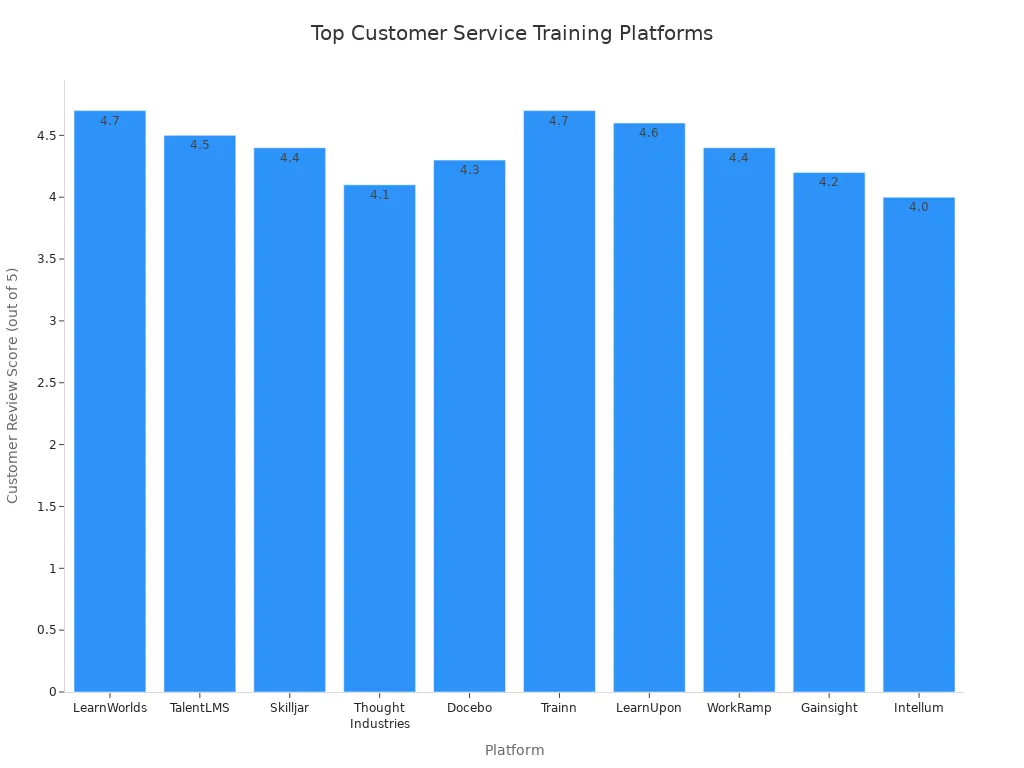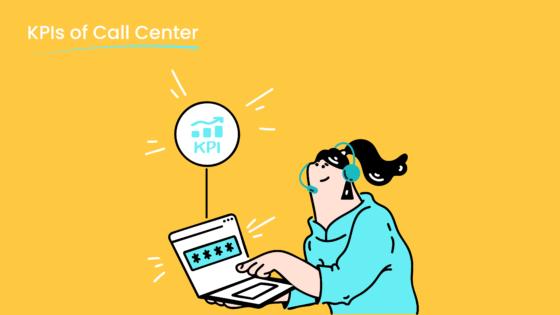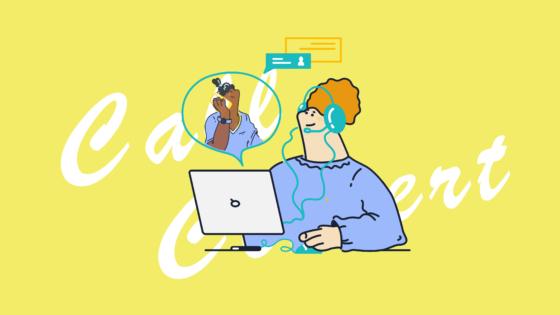Learn customer service skills online and impress your boss

Online customer service training can boost your skills fast and help you shine at work. When you master customer service skills, you stand out and get noticed for better job performance. In fact,
- 59% of employees say training helps them do their jobs better.
You can access great resources wherever you live or work. Here are some options:
| Provider | Accessibility Features | Regions Covered |
|---|---|---|
| Oracle University | Adheres to guidelines, offers accessible courseware upon request | U.S., Canada, and others |
| Level Access | Training library for different roles and industries | Various industries |
Check out Sobot, Sobot AI, and Sobot call center solutions to make learning even easier, no matter your customer-facing role.
Why Customer Service Skills Matter
Job Performance
You want to do your job well and feel confident every day. Customer service skills help you handle tough questions and solve problems fast. When you know how to listen and respond, you make customers happy and build trust. Well-trained employees show confidence and manage complex situations with ease. You can see the results in your performance scores, like Customer Satisfaction Score (CSAT), Net Promoter Score (NPS), and Customer Lifetime Value (CLV). These scores help you track your progress and see how much you improve.
Tip: Practice active listening and empathy with every customer. You will notice your confidence grow and your job get easier.
Recognition at Work
Managers notice when you go the extra mile for customers. If you deliver great service, you stand out from your coworkers. Many employers now value online customer service certifications as much as traditional training. A LinkedIn report found that 83% of businesses trust online programs from reputable sources. When you finish online courses, you show your boss you can learn new skills and apply them in real situations. This makes you a stronger candidate for promotions and raises.
Here are some reasons employers value customer service skills:
- You help keep customers loyal.
- You solve problems quickly.
- You create a positive work environment.
- You show you care about customer expectations.
Customer Satisfaction
Customer satisfaction is the heart of every business. If you meet customer expectations, you help your company grow. Studies show that 81% of consumers are more likely to buy again after a positive experience. On the other hand, 61% will switch to a competitor after one bad experience, and 76% will leave after two. Training helps you handle complaints and questions faster, which leads to happier customers. When you use strong customer service skills, you make customers feel valued and understood. This builds customer loyalty and helps your company succeed.
| Impact of Good Service | Percentage of Customers |
|---|---|
| Will pay more | 68% |
| Will buy again | 81% |
| Will leave after 2 bad experiences | 76% |
Customer Service Training Resources

Online Platforms
You have so many choices when it comes to customer service training online. You can pick from platforms that offer interactive lessons, video courses, and live webinars. These platforms help you learn at your own pace and fit training into your busy schedule. You can start with basic skills or dive into advanced topics.
Here’s a quick look at some top-rated platforms for customer service training. These platforms get high marks from users for their features and ease of use.
| Platform | Customer Reviews | Features |
|---|---|---|
| LearnWorlds | 4.7 out of 5 | Cloud-based, scalable, on-demand training, live webinars |
| TalentLMS | 4.5 out of 5 | Designed for small businesses, gamification, easy to use |
| Skilljar | 4.4 out of 5 | Tailored for mid-market, integrates with Salesforce |
| Thought Industries | 4.1 out of 5 | Versatile, supports interactive training content |
| Docebo | 4.3 out of 5 | AI-powered LMS, popular for online training and onboarding |
| Trainn | 4.7 out of 5 | Specializes in video-based training, complete video toolkit |
| LearnUpon | 4.6 out of 5 | User-friendly, integrates with webinar tools |
| WorkRamp | 4.4 out of 5 | Simplifies new customer onboarding, user-friendly interface |
| Gainsight | 4.2 out of 5 | Focuses on customer success, robust analytics |
| Intellum | 4.0 out of 5 | Known for engaging learning experiences |

You can also find popular courses on Coursera, Udemy, LinkedIn Learning, Alison, and Skillsoft. These sites offer a wide range of customer service training programs. You can choose courses that match your experience level and career goals.
If you want a solution that goes beyond basic training, Sobot offers a full suite of customer service tools. Sobot’s platform includes live chat, chatbot, AI Agent, ticketing system, WhatsApp Business API, and a powerful Voice/Call Center. You can learn more about Sobot’s products and services at Sobot’s official website.
Tip: Try different platforms to see which style of customer service training works best for you. Some people learn better with videos, while others prefer interactive lessons.
Sobot Voice/Call Center

You want to impress your boss and deliver top-notch service. Sobot’s Voice/Call Center gives you the tools to do just that. This solution helps you manage calls, track customer data, and automate tasks. You get a unified workspace where you can see all your customer interactions in one place.
Sobot’s Voice/Call Center stands out because it uses AI-powered features. You can set up intelligent IVR menus, route calls to the right agent, and even use a voicebot to handle simple questions. The system supports global phone numbers, so you can connect with customers anywhere. You get real-time monitoring and analytics, which help you spot trends and improve your service.
Here are some unique features you’ll find in Sobot’s contact center solutions:
| Unique Feature | Description |
|---|---|
| Omnichannel AI | Covers every touchpoint for seamless customer interaction. |
| Scenario-based AI | Tailored for e-commerce and retail scenarios. |
| Multi-faceted AI | Includes AI Agent, Copilot, and Insight functionalities. |
| Generative AI | Powered by advanced LLMs, including OpenAI and others. |
| Secure AI | Ensures data privacy and compliance for user security. |
You can use Sobot’s Voice/Call Center on your computer or mobile device. The system is easy to set up and integrates with your existing CRM. You get 99.99% uptime, so you never have to worry about downtime. Sobot’s solution helps you work faster and smarter, making your customer service training even more valuable.
If you want to see how Sobot’s Voice/Call Center works in real life, check out the Samsung case study. Samsung used Sobot to boost agent efficiency by 30% and reach a 97% customer satisfaction rate.
Note: Sobot’s platform supports global telephony contacts, encrypted data transfer, and AI-powered voicebots. You can find more details at Sobot Voice/Call Center.
Free vs. Paid Options
You might wonder if you should pay for customer service training or stick with free courses. Both options have benefits, but they serve different needs.
- Free courses work well for beginners. You can learn basic skills without spending money.
- Paid courses offer deeper and more specialized content. You get hands-on training and expert guidance.
- Professionals often choose paid training to master advanced skills and earn certifications.
- Free training builds goodwill and helps you get started. Paid options are seen as more valuable and professional.
- Fees for paid courses help cover the cost of creating high-quality training materials.
If you want to build a strong foundation, start with free customer service training. You can move to paid options when you need more advanced skills or want a certificate to show your boss. Many platforms, like Udemy and LinkedIn Learning, offer both free and paid courses. Sobot’s solutions also provide training resources and support for agents, so you can keep learning as you work.
Tip: Mix free and paid customer service training to get the best results. Start with free lessons, then invest in paid courses when you want to level up your skills.
You can find more information about online customer service training platforms and their features at LearnWorlds, TalentLMS, and Skilljar.
Essential Customer Service Skills to Learn
You want to impress your boss and build strong customer relationships. You need to master a few essential customer service skills. These skills help you handle every situation, meet customer expectations, and create positive experiences. Let’s break down the four most important skills you should focus on.
Communication
Communication sits at the heart of every customer interaction. You need to express yourself clearly and listen carefully. When you use effective communication, you make customers feel heard and valued. You also avoid misunderstandings and solve problems faster.
Here are some proven communication techniques that can boost your customer service skills:
| Technique | Description |
|---|---|
| Understand what is not being said | Read between the lines to find new ways of helping clients. |
| Each interaction leaves clients with a positive feeling | Make sure every touchpoint leaves customers satisfied and valued. |
| Clients feel you understand their problem | Show empathy to build customer trust in your brand. |
| Use positive language | Choose words that encourage and reassure customers. |
| Create an omnichannel communication experience | Engage customers across all digital channels to retain more of them. |
| Provide hybrid support | Mix traditional support with digital self-service materials for better results. |
You can use these techniques in every conversation. Try to listen more than you speak. Ask questions to understand what the customer really needs. Use simple words and a friendly tone. When you communicate well, you build trust and make customers feel comfortable.
Tip: Practice active listening by repeating back what the customer says. This shows you care and helps avoid confusion.
Industry experts often mention these customer service skills as essential for success:
- Positive attitude
- Teamwork
- Conflict resolution
- Critical thinking
- Product knowledge
- Persuasive speaking skills
- Goal-oriented
- Time management
You can see that communication connects with many of these skills. When you master communication, you set yourself up for success in every customer-facing role.
Empathy
Empathy means you understand and share the feelings of others. In customer service, empathy helps you connect with customers on a deeper level. You show that you care about their problems and want to help.
Empathy training has a big impact on customer satisfaction and customer loyalty. Research shows that when you use empathy, you address emotional needs and create genuine connections. Customers feel valued and understood. They trust you and your company.
Here’s how empathy improves your customer service skills:
- You offer personalized solutions that boost satisfaction and loyalty.
- You build trust, which is key for customer loyalty.
- You tailor your responses by understanding customer emotions.
- You acknowledge customer feelings, which encourages repeat business.
Imagine a customer who feels frustrated. You listen, show understanding, and respond with kindness. That customer leaves the conversation feeling better. They remember your empathy and come back next time.
Note: Empathy is not just about saying “I understand.” It’s about listening, caring, and responding in a way that makes the customer feel important.
Problem-Solving
Problem-solving skills help you tackle challenges and find solutions quickly. You face new problems every day in customer service. You need to think fast, stay calm, and use the right tools.
Effective problem-solving skills include several key steps:
- Follow up with customers after you resolve their issues. This shows you care and helps you get feedback.
- Maintain a knowledge base with up-to-date information. Customers get answers faster, and you avoid frustration.
- Act on customer feedback. Use what you learn to improve your service and build trust.
- Personalize customer interactions. Avoid scripted responses. Adapt your answers to each customer’s needs.
You can use these problem-solving skills to handle complaints, answer questions, and fix mistakes. When you solve problems well, you meet customer expectations and keep customers happy.
Callout: Always check back with customers after you help them. A quick follow-up can turn a good experience into a great one.
You also need to use critical thinking and product knowledge. These skills help you analyze situations and find the best solution. When you combine problem-solving skills with a positive attitude, you create a winning formula for customer service.
Conflict Resolution
Conflict happens in every customer service job. You need to resolve issues calmly and professionally. Conflict resolution is one of the most important customer service skills you can learn.
Best practices for conflict resolution include:
- Listen and validate the customer’s frustration. Show empathy and understanding.
- Troubleshoot or offer solutions. Guide the customer through steps or provide options like a replacement or refund.
- Follow up to make sure the solution works for the customer.
- Use active listening. Focus on the customer’s concerns and show genuine care.
- Practice tactical empathy. Understand the customer’s feelings to build trust.
- Use reflective listening. Repeat the customer’s words to confirm understanding.
- Stay calm and maintain a soft tone. This helps de-escalate anger.
- Pause and take deep breaths. Control your emotions during tense moments.
- Redirect the conversation if needed. Keep the focus on solving the problem.
You can use these conflict resolution skills to turn unhappy customers into loyal fans. When you resolve conflicts well, you protect customer relationships and build a positive reputation.
Tip: Stay calm and listen first. Customers want to feel heard before you offer solutions.
Conflict resolution connects with teamwork and goal-oriented thinking. You work with others to find the best outcome. You keep your focus on helping the customer and meeting their needs.
You now know the four essential customer service skills: communication, empathy, problem-solving, and conflict resolution. These skills help you meet customer expectations, build customer loyalty, and create strong customer relationships. When you practice these skills every day, you become a valuable team member and impress your boss.
Apply Skills at Work

Actionable Tips
You want to use your new customer service skills every day. Here are some practical ways to make a difference at work:
- Equip yourself with the right tools. Use software that helps you track customer interactions and manage tasks.
- Communicate with clear and friendly language. Customers feel welcome when you speak simply and politely.
- Listen actively. Pay attention to what customers say and ask questions to understand their concerns.
- Streamline your process. Offer self-service options so customers can solve simple problems on their own.
- Encourage a customer-centric culture. Remind your team to put customer needs first and meet customer expectations.
Tip: Try to review your customer service training notes before each shift. This helps you stay sharp and ready for any situation.
Sobot Omnichannel Solution
Sobot’s Omnichannel Solution makes your job easier and helps you deliver better service. You can connect with customers on websites, mobile apps, and social media. The AI voicebot handles both inbound and outbound calls, so you spend less time on routine questions.
Sobot’s platform gives you real-time analytics. You see how customers behave and what they need. This helps you respond quickly and stay ahead of changes. Experts say generative AI will soon handle most customer interactions, making service faster and more personal. Sobot’s call center platform has already increased reception efficiency by 48%. You also get a 41% reduction in average handle time and a 54% improvement in first-contact resolution rate.
Note: Sobot’s AI helps you create personalized connections with every customer. You can focus on complex issues while the system takes care of simple tasks.
Measuring Progress
You want to know if your skills are improving. Use these metrics to track your progress:
| Metric Category | Description |
|---|---|
| Customer Satisfaction | Measures how happy customers are with service interactions and likelihood to recommend the company. |
| Operational Efficiency | Assesses team performance, including ticket resolution times and customer wait times. |
| Business Value | Evaluates the impact of customer service on customer retention and overall business performance. |
Customer experience metrics show how well you meet customer expectations. They measure satisfaction, loyalty, and engagement. These numbers help you see the impact of your customer service training and find areas to improve.
Success Stories
Samsung Case Study
You might wonder how real companies use technology and training to improve customer service. Samsung is a great example. When Samsung wanted to boost agent efficiency and customer satisfaction, they turned to Sobot’s all-in-one contact center solution. After rolling out Sobot’s AI-powered platform, Samsung saw a 30% reduction in response times. This meant agents could help more customers each day and solve problems faster. Customers noticed the difference, too. Samsung’s customer satisfaction rate jumped to 97%. Agents felt more confident because they had better tools and training. Customers felt heard and valued every time they reached out.
When you use the right tools and focus on customer service training, you can see big improvements in both efficiency and customer satisfaction.
Career Growth
You can also use online customer service training to grow your own career. Many companies have seen their employees move up after learning new skills online. Here are some ways training helps you advance:
- You handle customer questions and complaints better, which makes you stand out.
- Training builds your problem-solving and critical thinking skills.
- You can move from entry-level roles to leadership positions, like team lead or even Chief Customer Officer.
- Some companies, like TTEC, offer free digital courses and special programs to help you grow faster.
- Training boosts your confidence and motivation, so you feel ready to take on new challenges.
Other companies have seen similar results. For example, Three Ireland improved support resolutions and sales. NetApp expanded its knowledge base to help more people. Canon USA and HubSpot used peer support and knowledge sharing to save costs and drive business results. When you invest in customer service training, you open the door to new opportunities and long-term success.
Maximize Online Learning
Motivation
Staying motivated during online learning can feel tough sometimes. You might get distracted or lose focus. To keep your energy high, try these simple strategies:
- Set clear goals so you know what you want to achieve.
- Choose training materials that feel interesting and connect to your daily work.
- Look for courses that use gamification, like rewards or leaderboards, to make learning fun.
Gamification has the power to enhance employee excitement and engagement. You get the chance to earn rewards through active participation and outstanding performance.
When you feel excited about learning, you stick with it and get better results.
Goal Setting
Setting goals gives you a clear path to follow. You know what you want, and you can track your progress. When you set specific and challenging goals, you push yourself to do more and stay engaged. Here’s what research shows about goal setting in online learning:
| Key Findings | Description |
|---|---|
| Goal Setting Impact | Learners with specific learning or performance goals achieved more and engaged longer than those without goals. |
| Persistence and Achievement | The study highlights the importance of goal setting in enhancing course persistence and overall achievement in MOOCs. |
You can boost your success by:
- Making your goals specific and realistic.
- Picking goals that challenge you but still feel possible.
- Checking your progress often and celebrating small wins.
When you set goals, you take control of your customer service training journey.
Course Features
The best online courses keep you active and involved. You don’t just watch videos—you join in, practice, and connect with others. Here are some features that make online learning more effective:
| Feature | Description |
|---|---|
| Interactive Activities | You stay interested by doing activities every few minutes. |
| Real-world Case Studies | You learn from real examples, which helps you understand how to use new skills at work. |
| Personalized Assessments | You get feedback that matches your needs, so you know where to improve. |
| Collaborative Sessions | You share ideas and learn from others in group sessions. |
| Networking Opportunities | You meet people from around the world and build your support network. |
You can also expect to see engaging activities, teamwork, and real stories from top companies. These features help you apply what you learn right away and make your training more valuable.
Online customer service training gives you real advantages at work. You build a skilled workforce, boost engagement, and help your company grow.
| Benefit | Description |
|---|---|
| Enhanced Experience | Customers feel valued and stay loyal. |
| Employee Engagement | You feel more motivated and confident. |
| Business Growth | Your company stands out and grows faster. |
When you master customer service skills, you open doors to leadership, new roles, and bigger networks. Try Sobot’s solutions to keep learning and impress your boss every day!
FAQ
How can I learn customer service skills online?
You can start with online platforms like Udemy, Coursera, or Sobot’s training resources. These sites offer video lessons, quizzes, and interactive activities. You choose your pace and style. You build customer service skills from anywhere.
What makes Sobot’s solutions helpful for customer service training?
Sobot gives you tools like AI chatbots, a Voice/Call Center, and an omnichannel workspace. You practice customer service skills in real scenarios. You track your progress and impress your boss with better results.
Do I need to pay for online customer service training?
You find free and paid options online. Free courses teach basic customer service skills. Paid programs offer advanced lessons and certificates. Sobot provides resources and support for agents, so you keep learning while you work.
How do customer service skills help me impress my boss?
You solve problems faster, communicate clearly, and make customers happy. Your boss sees your improvement. You stand out for promotions and raises. Online training helps you master these skills and show your value.
Can I use Sobot’s platform on my phone?
Yes! Sobot’s Voice/Call Center works on Android and iOS. You manage customer interactions, calls, and messages from your mobile device. You stay connected and deliver great service wherever you go.
See Also
Transforming Customer Support With AI-Powered Agents
Ten Strategies to Enhance Live Chat Customer Experience
Excelling in Live Chat for Effective Customer Assistance
